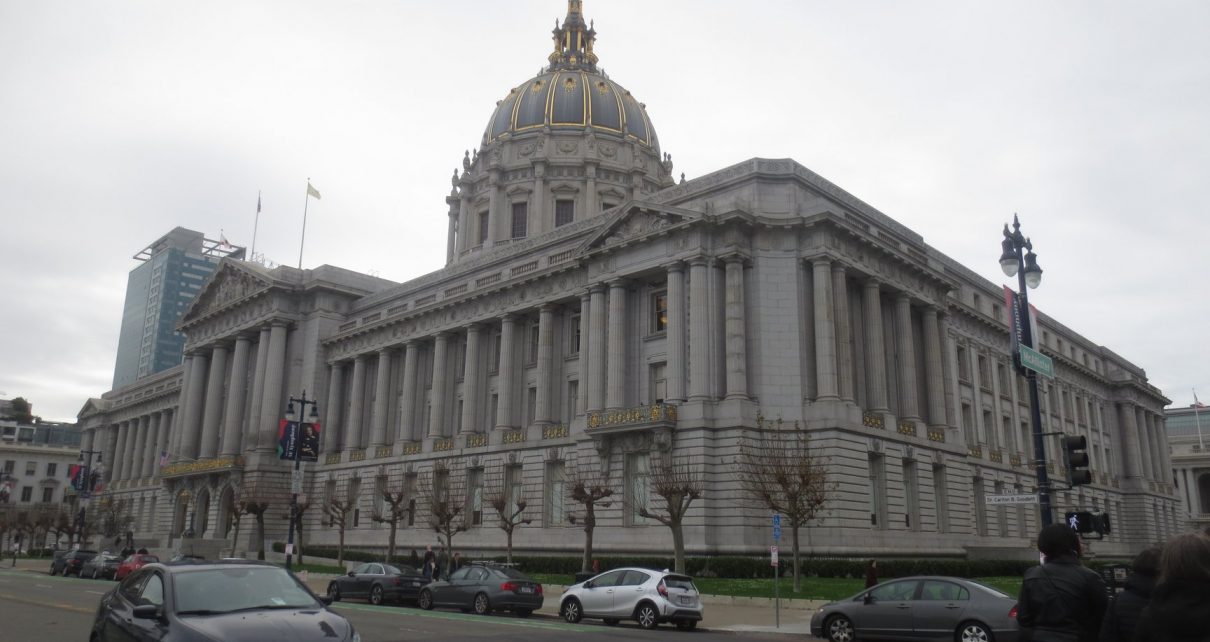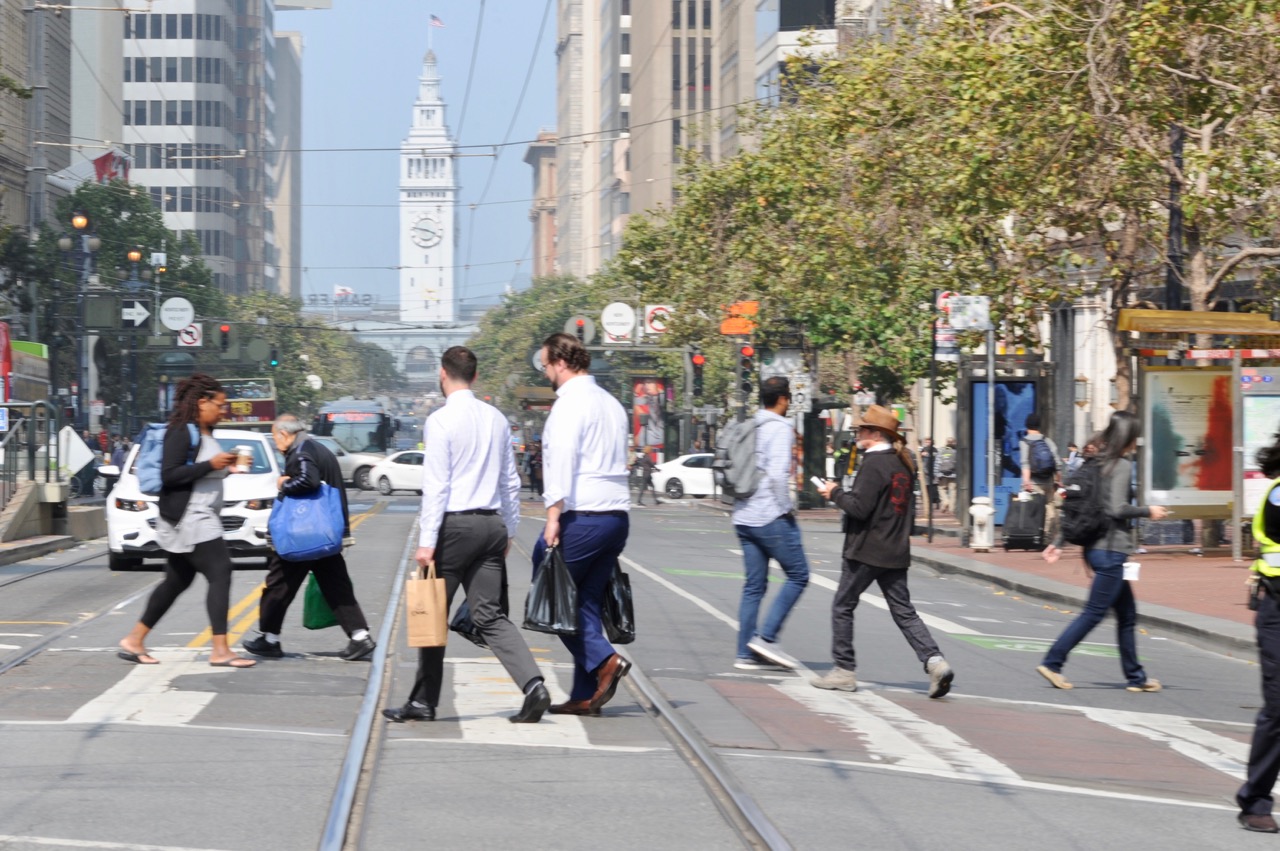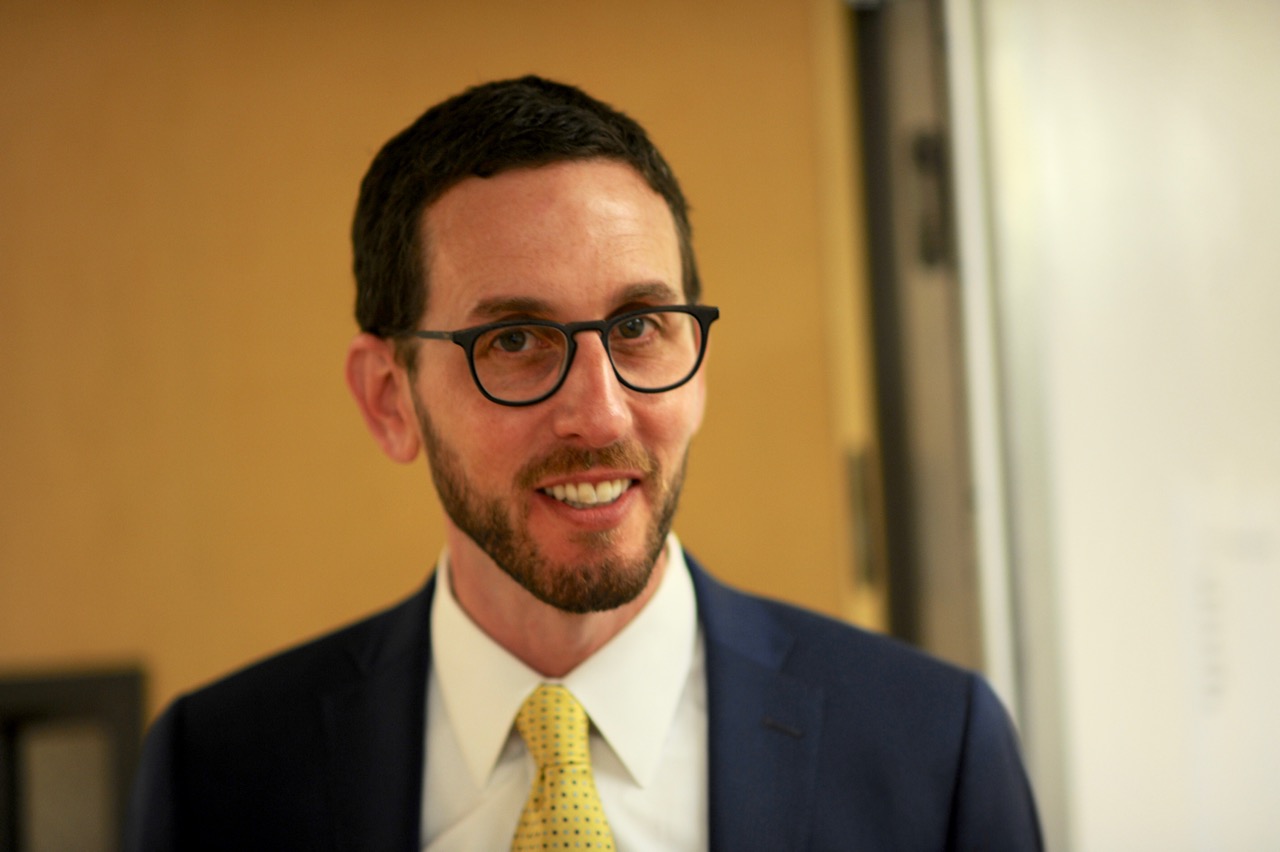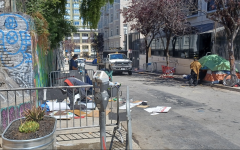
San Francisco City Hall (Photo: Evan Symon for California Globe)
San Francisco Petitioning CPUC for Reconsideration Following Robotaxi Vote
Board of Supervisors to go to other state agencies, courts should petition to CPUC fail
By Evan Symon, August 15, 2023 5:41 pm
The San Francisco Board of Supervisors announced on Tuesday that they will be petitioning the California Public Utilities Commission (CPUC) for a reconsideration of the recently passed driverless robotaxi expansion decision because of the threat they have against public safety.
Since June 2021 the city of San Francisco and driverless taxi companies such as Cruise and Waymo have been at odds over what the limits of the services should be. While CPUC slowly expanded the limits of the robotaxis, reports of blocked traffic, blocking emergency workers, blocking mass transit, and other worrying behavior by the cars becoming commonplace in the city. The SFPD, SFFD, and other emergency services soon began raising the issue of just how much these companies should expand by, as there were many kinks to be worked out.
Since March of 2022, both companies have been allowed to operate during certain hours of the day. Cruise offered paid rides in about 1/3rd of the city and Waymo offering free trips as the technology improves under the constant usage. As of August 2023, Cruise has 300 vehicles driving around San Francisco at night and 100 during daytime hours, with Waymo only operating 250 vehicles during the day.
This led to the CPUC vote last week. Cruise and Waymo petitioned CPUC for permission to offer paid rides at any time during the day throughout the city, and not be constrained by prior geographic limits, designated operating hours, and paid ride limits. Both companies stressed that the expansion in San Francisco, as well as to other cities like Santa Monica and Los Angeles, would be vital for not only the companies, but for autonomous driving technology as well.
However, the bulk of the meeting was filled with local residents, city workers, and city officials voicing opposition against the plan. Some within the SFPD and SFFD pointed to dozens of incidents in the last six months where rescue operations had been impeded by self-driving cars. Officials stressed that the incidents, which included driverless cars not moving when being told to by first responders on scene, needed to be solved first before more expansion is given.
“Our folks cannot be paying attention to an autonomous vehicle when we’ve got ladders to throw,” said San Francisco Fire Chief Jeanine Nicholson at the meeting. “I am not anti-technology, I am pro-safety.”
Despite safety concerns, as well as numerous other issues, CPUC voted 3-1 in favor of expansion. The decision illicted outrage of many in San Francisco who were in favor of only limited robotaxi usage and not a major expansion. The very next day, anger further flared by 10 Cruise robotaxis stalling in the North Beach neighborhood, causing a massive traffic jam.
With safety concerns growing once again, the Board of Supervisors announced on Tuesday that they would be petitioning CPUC for a reconsideration of the ruling. They also said that, should that fail, they would be going to the Department of Motor Vehicles or to court to bring up the matter due to the continued safety risks.
City to ask CPUC to reconsider
“What this says to me is when cell phones fail, if there’s a power outage or if there’s a natural disaster like we just saw in Lahaina that these cars could congest our streets at the precise time when we would be needing to deploy emergency apparatus,” said San Francisco Board of Supervisors President Aaron Peskin. “The City of San Francisco will be petitioning the California Public Utilities Commission asking them for reconsideration, potentially if need be, taking this to a court of competent jurisdiction, appealing to the Department of Motor Vehicles.
“We’re not trying to put the genie back in the bottle, but we are standing up for public safety. We want to work with them to smooth out the rough edges but it’s not going to be their way or, pun-intended, the highway.”
Sebastian Jordan, a mass transit advisor who has worked with multiple agencies in California in the past, told the Globe in an interview on Tuesday that “This is the last thing that Cruise, Waymo and any other driverless car service wanted. San Francisco literally told them that they will bring wave after wave of state agencies and court battles to them if CPUC doesn’t change their mind.
“The sad thing is that it will likely take a major accident to bring about any of these changes. Every safety feature or safety rule has deaths or major injuries behind it. Airbags were brought about because of several horrific crashes in the mid 20th century. Same with seatbelts. School buses have to stop at railway crossings because of a few bad accidents in the 60s.
“Right now, all it is for robotaxis is the potential of danger. They do have clear evidence of them blocking emergency workers and causing massive traffic jams. But, as the CPUC meeting showed last week, it wasn’t quite enough. That traffic jam and some other incidents could push the needle in asking them again, but it will likely take the courts to make the changes barring any huge incident.”
As of Tuesday, neither Cruise or Waymo have responded to the petition by the city.
- San Francisco Cruise Robotaxi Folds Following $10 Billion In Losses - December 11, 2024
- New Information Shows UnitedHealthcare CEO’s Assassin Has California Ties - December 10, 2024
- Boeing To Cut 536 Jobs From California Following Several Years Of Major Incidents, Losses - December 10, 2024





Why should millions of Californians allow five unelected Democrat bureaucrats to issue dictates like this? One of the three votes in favor was a Commissioner who jumped from the CPUC to a paying job for Cruise, and then jumped back to the CPUC. He didn’t recuse himself for the vote despite a glaring conflict of interest. California is a mega corrupt state? It’s past time that these unelected bureaucrats were sent packing: Alice Busching Reynolds, CPUC President along with Commissioners Genevieve Shiroma, Darcie L. Houck, John Reynolds, and Karen Douglas.
Absolutely, TJ. And CA is a “mega-corrupt state” for sure. Sigh.